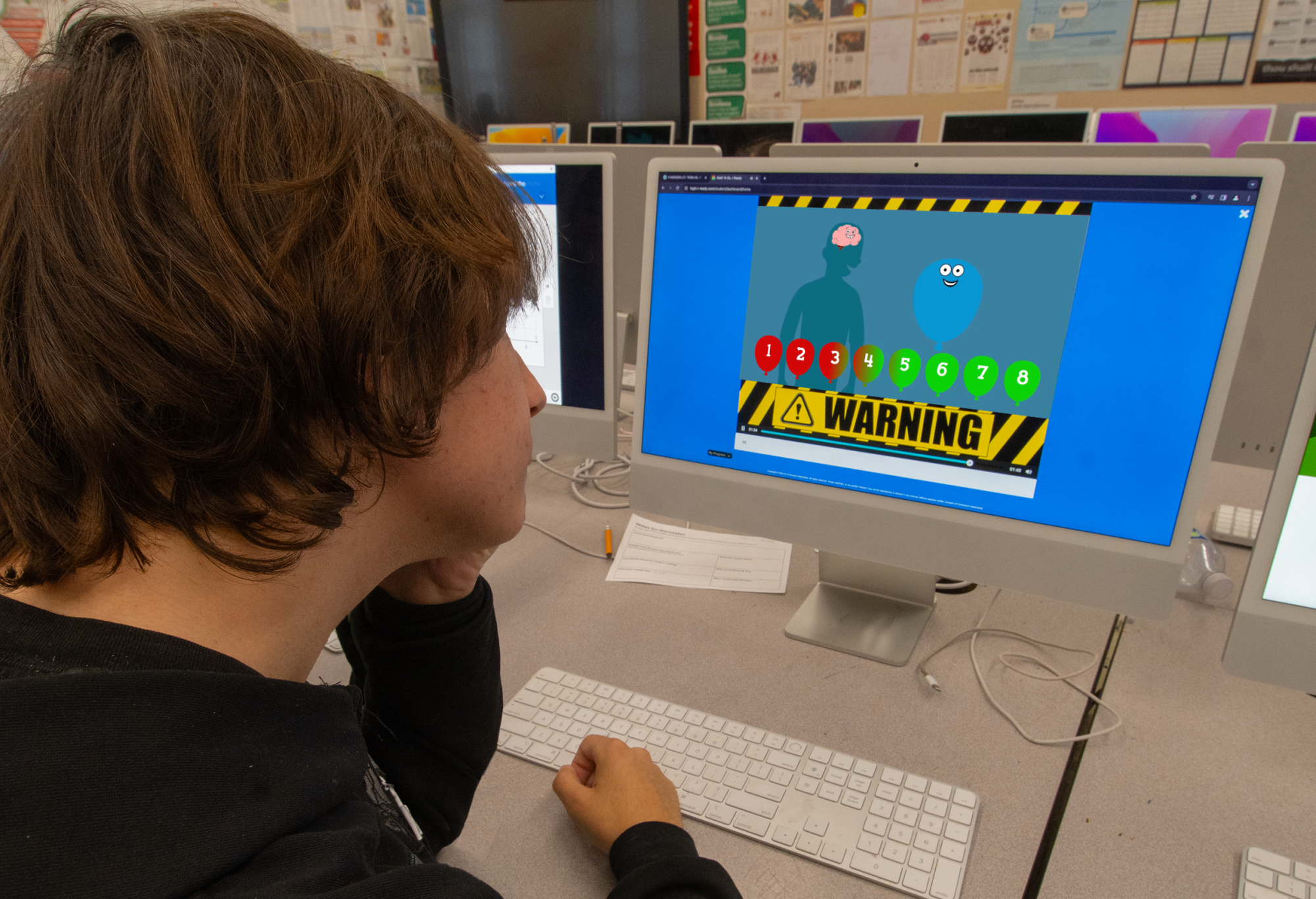Replacing the Renaissance STAR assessment, which LAUSD students have been routinely taking since 1998, the i-Ready Assessment was administered to high school, middle school and elementary school students as of Sept. 18, 2023.
“The i-Ready test is longer than the Renaissance test, but it is more detailed, so it gives you a more comprehensive score of where the students are at in terms of their understanding of reading and mathematics,” testing coordinator Ms. Michelle Park said. “For reading, there is an assessment for literacy, one for reading comprehension and one for vocabulary. There are five sections overall. It’s the same thing with math; there are multiple sections about operations.”
The i-Ready was adopted due to its alignment with the California Smarter Balanced Assessment, a system that allows students to understand their academic level based on the Common Core State Standards.
Ms. Park says that the i-Ready test provides a proper understanding of where a student is standing academically. For students who are not up to par, the i-Ready suite provides lessons designed to catch students up to grade level for both math and English.
“If they’re below grade level, there are certain lessons that the i-Ready provides for students to take,” she said. “I think it really does support students in their growth.”
According to HumRRO, a third-party research firm, schools with school-wide implementation of the i-Ready have significantly increased student achievement in a three-year research period compared to schools that did not implement the i-Ready.
While administrators and teachers believe that the i-Ready is an effective measure of a student’s progress in a respective subject, many students disagree, with some even dismissing the notion of standardized testing as a whole.
“The testing format doesn’t make sense to me and it frustrates me as I’m taking the test,” sophomore Fatima Dela Cruz said.
Junior Anthony Sanchez echoes this sentiment, agreeing that the i-Ready does not provide a comprehensive overview of a student’s academic performance.
“I have friends who purposely don’t try on the i-Ready because they know it’s not graded,” he said. “If the teachers use this score, there’s honestly no point because the results are tainted.”
According to The Mirror’s survey, only 3% of students polled consider the i-Ready helpful.
While many students consistently agree that the i-Ready system is an inadequate scale for measuring a student’s subject grade level, some students and teachers insist that the more pressing issue at hand is time.
Teachers, who are already navigating tighter schedules to cover increasingly extensive curricula, may also face the repercussions of lower class averages due to an instructional time setback of nearly one-and-a-half weeks every year due to i-Ready testing.
“I believe it’s a waste of time,” senior Djaeda Hall said. “We could be learning things we need to be using for the future but instead we’re taking a test on things we learned a while ago. I would change everything about the i-Ready. It’s not a good test, and it’s way too long.”
Math teacher Mr. Bradley Margolin agrees with students’ complaints to some extent.
“It’s not a waste of time, but I really wish it could be fine-tuned so it would take up less instructional time,” he said.
However, Ms. Park disagrees with the claim that the test takes too much time.
“I do wish it was a little bit shorter, but for the most part, if the students are actually on top of it and focused on the test and trying their best throughout, I think most students who are focusing can probably finish it within two or three days,” she said. “I think the problem is that some students are absent when testing is happening, and that’s why it feels longer than it should be.”
Brain breaks are a non-skippable component of the i-Ready, providing meditation breaks that last for a couple of minutes. These breaks guide students through breathing exercises meant to calm their brains, attempting to combat test anxiety. However, many students agree that these brain breaks do not serve their purpose, as most simply want to get the test over with and finish the assessment faster.
“The brain breaks add even more pointless time wasted, and it’s almost like they are treating you like a child,” Sanchez said.
This frustration towards the assessment has students proposing their own solutions to make the test a more effective, engaging and meaningful experience. Hall suggests incentivizing students with a leaderboard in order to better motivate students to perform at their best.
Other students suggest reforms targeted towards the testing platform as a whole that would decrease the amount of time spent on the exam while increasing the overall effort exerted on the test by the student population.
“In the English section, instead of giving us so many passages, maybe they could base more questions on a longer passage, just like how the paper SAT works,” Sanchez said.
On paper, i-Ready is supposedly a beneficial standardized testing platform meant to assess a student’s subject grade level. In practice, it’s clear that the i-Ready is ready for reform if it is to be widely accepted by students and staff as a reliable assessment tool.
The abridged version of this article appeared in the Spring 2024 print edition. This is an uncut version.




